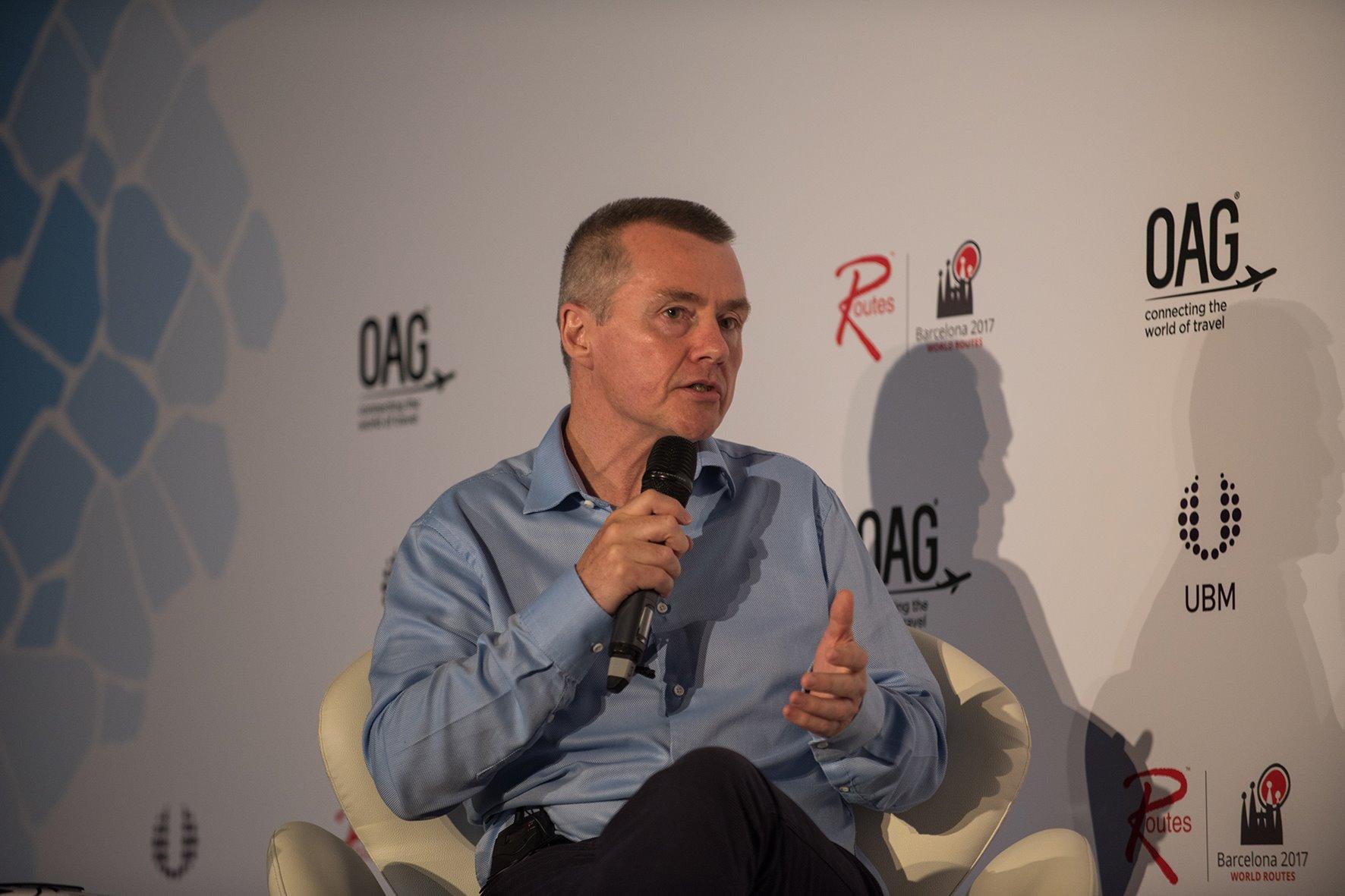
The airline leaders panel at the ACI Europe Annual Assembly discussed the new focus on sustainability, sharing concerns that the mooted tax will be implemented ineffectively and be detrimental to airlines and consumers.
David O’Brien, the CCO of Ryanair, highlighted what he called the “fallacy” that airlines don’t pay enough tax. “We’re already getting screwed on taxes,” he said.
“This is the biggest example of virtue signalling… the biggest problem in the environmental scene right now is abuse of the issue.
“We [airlines] are the only ones taking this seriously because we have the biggest vested interest. Everybody else sees it as an opportunity to make money.”
“Everyone should just take trains, which as we know run on fairy dust,” he joked.
O’Brien also said that any taxes imposed should be a percentage of fares, unlike the fees paid for delayed flights which see airlines paying a flat rate despite the significant disparity between passenger charges.
“If there is going to be a new tax it must be a percentage of the fare,” said O’Brien. “If you are paying more you are probably travelling for luxury and on a half-full aircraft, and are a bigger part of the problem.”
Fellow panellist Robert Carey, chief commercial and strategy officer, easyJet, said that however the taxes are implemented they are likely to be ineffective and actually limit progress.
“I challenge and one to think of an example where a tax on an industry has spurred innovation,” he said. “With these extra costs how are we going to push this industry forward and invest?”
Unsurprisingly IAG CEO Willie Walsh (pictured) would not be drawn on whether full-service passengers were a more serious carbon contributor, but warned that any additional costs posed a real threat to the profitability and therefore ongoing viability of many European airlines.
“There’s a misconception in the market that people are willing to spend a couple more euros to fly; they aren’t,” said Walsh.
“Every single penny we spend gets examined. There will be airlines going out of business because they haven’t managed their cost base effectively.
“I think 2019 will be a tougher year for most airlines, particularly those which aren’t hedged on oil prices and have weaker balance sheets. I wouldn’t be surprised to see a number of airlines disappear in the back half of this year and into 2019.”
Walsh also outlined his vision for increasing sustainability at IAG, which in the short term will see use of more biofuels across the fleet.
“For us we’re convinced that waste-to-liquid is the new solution for fuels, and we expect to be using a biofuel by 2022,” he said.
“That’s part of the medium-term solution; clearly longer term we hope that electric aircraft will change that. The opportunity for electric or hybrid electric is about 20 percent of the market at present.”
O’Brien agreed that “it’s inevitable that one or two sizable airlines will disappear, along with more of the smaller ones”.
Ryanair has been a major beneficiary of airline consolidation in Europe, and now operates a number of brands, allied to Ryanair Sun.
O’Brien joked that “if no-one else can compete with us, we’ll have to compete with ourselves”. When asked if Ryanair would emulate the IAG model, he replied tongue-in-cheek that the Irish carrier has “long been admirers of Willie… we hang on his every word”.





